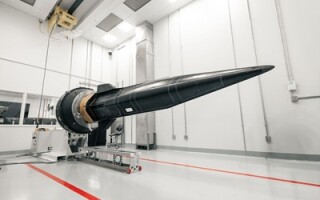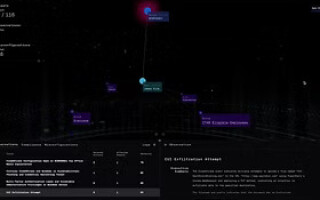Raytheon and SMU form a partnership for cyber research
NewsAugust 18, 2015

DALLAS. Southern Methodist University (SMU) and Raytheon have joined in a strategic cyber research partnership based on the company?s efforts to collaborate with Darwin Deason Institute for Cyber Security in SMU?s Bobby B. Lyle School of Engineering. Together they will work on research projects in cybersecurity. Education initiatives as well as opportunities for SMU students to intern at Raytheon will be offered.
I got accepted to SMU before I went on my last deployment with the Navy and they saved my spot to start the subsequent semester after I had decided to extend my service for another six months in order for me to actually make the deployment. So getting the news that SMU was partnering with Raytheon was a pleasant surprise. I have fond memories of my alma mater. I was too old to get the full experience, but certainly not too old too enjoy myself while I learned from some of the great minds of literature.
SMU is not the only one educating cyber defense to students that will have a massive effect in the future of the cyber world. The Naval Academy received a donation from Leidos in support for its Fall cybersecurity studies and Carnegie Mellon University (CMU) also continued with its contract under the Department of Defense (DoD) to develop technologies and practices through its own research and to apply technologies developed by outside organizations to solve engineering and cybersecurity challenges in fields including aerospace, transportation, banking and finance, energy, robotics, and industrial automation.
"The work we do together benefits SMU and Raytheon, government and industry, and ultimately anyone with a laptop or smart phone. It will also help train our students to become part of a desperately needed workforce of cyber defenders," says Fred Chang, director of the Deason Institute and the Bobby B. Lyle Endowed Centennial Distinguished Chair in Cyber Security.
In a recent warfare evolution blog by Ray Alderman, he discussed where the future of war might be headed. While we still have work to do, he posed an interesting possibility in which a war exists with no casualties. The Naval Academy Foundation’s senior director even posted his thoughts that tomorrow’s war will be a cyber one.
"Collaboration between academic centers of excellence like SMU and industry leaders like Raytheon is a powerful engine for innovation," says Dave Wajsgras, president of Raytheon Intelligence, Information and Services.
These students and naval cadets from different parts of life are ahead of the game. They will be influenced by the past and determine the future. Part of SMU's academic success, I think, is the relationship that they foster with students. This provides another opportunity for students to thrive in an environment that can grow exponentially.





